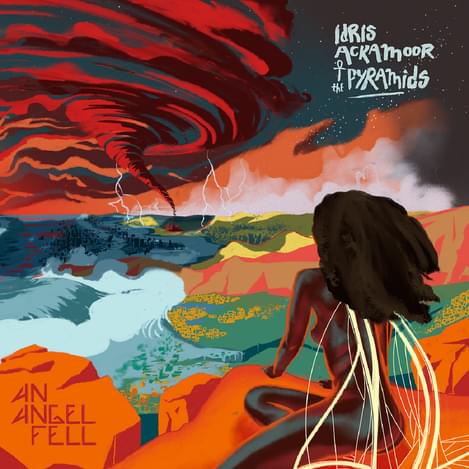The resurgence of cosmic jazz adventurers Idris Ackamoor & The Pyramids continues unabated
"An Angel Fell"

Ackamoor and his band may well have experienced a milder take on such displacement after re-launching operations after a four-decade break with 2016’s We Be All Africans. Rather than a hopelessly obscure cult concern, if not a downright laughing stock for serious jazz connoisseurs, Ackamoor and co’s brand of Afrocentric, spiritually inclined cosmic jazz is now hipper and more sought-after than ever, thanks not least to the sterling work carried out by Kamasi Washington (a definite kindred spirit).
In other ways, the environment the band have returned to is more easily recognisable as the conflict-ridden setting that inspired their original trio of albums in the 1970s (it was the championing of these impossibly rare, independently released albums that convinced Ackamoor to regroup with his sidekicks in 2012, 40 years after the group was founded in Ohio, and 35 years they disbanded in San Francisco). In addition to the inequality, brutality and rising tensions that Ackamoor and co. were commenting on during their first phase as an active outfit (explored most explicitly on the soaring “Soliloquy for Michael Brown”, a tune named after a young black man gunned down by police in Ferguson, Missouri in 2014 which moves effortlessly from grief-stricken lyricism to raging fury), An Angel Fell is informed by the ever-escalating dangers of global warming and the increasing strains the planet we inhabit is subjected to. But there’s hope and optimism too, as exemplified by the blissful closer “Sunset”.
An Angel Fell certainly merits being described as conscious and maybe even protest music. However, you don’t need to take that much of an interest in the underlying themes to appreciate its rich grooves. You won’t require that much affinity with jazz either. By this point, it would be hopelessly reductive to describe Ackamoor & The Pyramids as a jazz group. Jazz is certainly a key element in the six-piece’s musical make-up, due not least to the relative proximity to the legendary likes of Pharoah Sanders (another definite kindred spirit) exhibited by Ackamoor’s soloing on the tenor saxophone, as well as the obvious nods to the Sun Ra Arkestra - the undisputed heavyweight champions of cosmic jazz - sprinkled during the chant-fuelled title track and the stately hypnosis of the dub-hued “Land of Ra”.
Elsewhere, genre barriers come crashing down as the vibrant “Tinoge” draws from the percussive exuberance of Fela Kuti-originated Afrobeat, whilst “Warrior Dance” nods towards the high octane streetwise funk associated with 1970s ‘Blaxploitation’ crime flicks. Due not least to the prominence of Sandra Poindexter‘s violin, there’s a detectable undercurrent of the smoky vibes of the Ethiopian funk sound popularized by Mulatu Astatke, another great artist rescued from unwarranted obscurity by crate-diggers. Produced by Malcolm Catto by the similarly open-eared Heliocentrics (who wisely adds scant additional elements to the band’s natural flow), the result is a hugely diverse album that still somehow manages to form a cohesive whole - as well as proving that it is perfectly possible to operate at top creativity after 40-odd years in the business.
Get the Best Fit take on the week in music direct to your inbox every Friday

Prima Queen
The Prize

Femi Kuti
Journey Through Life

Sunflower Bean
Mortal Primetime





